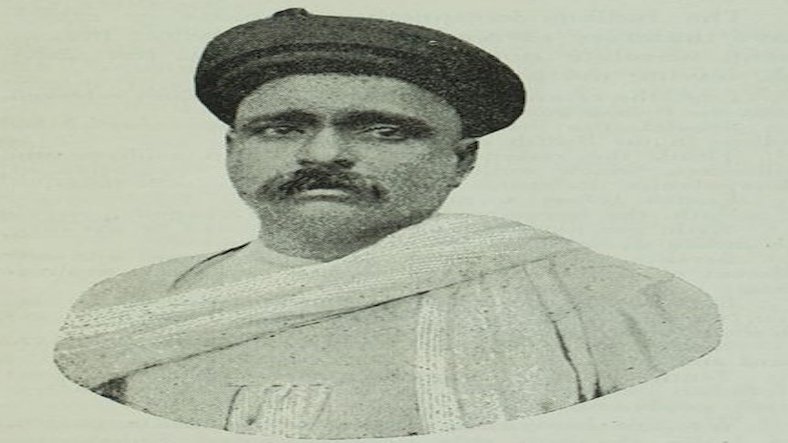Ramakrishna Gopal Bhandarkar (1837–1925) was one of India’s most distinguished Sanskrit scholars, historians and social reformers. Considered a pioneer of modern Indology, he introduced scientific methods to the study of India’s ancient past, religious systems and literature. His work continues to shape academic research even today.
Early Life and Education
Ramakrishna Gopal Bhandarkar was born in 1837 in Kolhapur, Maharashtra. From a very young age, he showed exceptional interest in languages, manuscripts and ancient Indian traditions.
After completing his schooling, he moved to Bombay (now Mumbai) for higher studies. His academic excellence led him to become one of the first Indians to earn an M.A. degree from Bombay University. This laid a strong foundation for his lifelong dedication to research and education.
R. G. Bhandarkar’s Contribution to Sanskrit Studies and Indology
Bhandarkar is widely regarded as a foundational figure in modern Indology, the academic study of Indian culture, languages and history.
His major contributions include:
- Discovering, preserving and studying ancient Sanskrit manuscripts
- Editing and publishing critical editions of classical texts
- Translating important works for global scholars
- Conducting scientific research on Indian religions and ancient literature
- Introducing historical and linguistic analysis into traditional Sanskrit studies
His work ensured that many rare and valuable manuscripts survived and became accessible to future generations.
Study of Hindu Religious Systems
One of Bhandarkar’s most influential contributions is his book:
Vaisnavism, Saivism and Minor Religious Systems
In this landmark publication, he:
- Traced the historical development of major Hindu sects
- Analyzed how various traditions evolved over centuries
- Explained the spread of religious ideas across regions
- Compared belief systems using historical evidence rather than myths
This book remains a core reference for students of Indian religion and history.
Role in the Scientific Study of Ancient Indian History
R. G. Bhandarkar was among the first scholars to apply a scientific, evidence-based method to Indian history. Instead of relying on assumptions, he used original sources such as:
- Stone inscriptions
- Copper-plate grants
- Ancient manuscripts
- Archaeological findings
Through meticulous research, he corrected several historical timelines, clarified dynastic histories and helped remove widespread misconceptions about India’s ancient past. His work laid the foundation for modern historical research in India.
Social Reform Activities
Beyond scholarship, Bhandarkar was a committed social reformer during the colonial period. He worked actively for:
- Women’s education
- Abolition of child marriage
- Social equality and justice
- Promoting rational and scientific thinking
- Educational reforms and modern learning
He was closely associated with the Prarthana Samaj, a progressive movement that aimed to reform Indian society by reducing superstitions and promoting moral values. His forward-thinking ideas created long-term social change.
Google Ad 1
Academic Career and International Recognition
R. G. Bhandarkar held several prominent academic positions, including:
- Professor at Deccan College, Pune
- Faculty at Bombay University
- Visiting professor at the University of Oxford
He wrote numerous research papers, books and critical editions covering Sanskrit literature, religious history and cultural studies.
Honors & Recognition
- Conferred the title “Rao Bahadur”
- Awarded multiple honorary doctorates
- Gained global respect among scholars in Europe and Asia
To honor his contributions, the Bhandarkar Oriental Research Institute (BORI) was established in Pune. Today, it stands as one of India’s most important centres for Sanskrit and historical research.
Legacy of R. G. Bhandarkar
R. G. Bhandarkar’s legacy continues to inspire generations of students, historians and reformers. His key contributions include:
- Advancing Sanskrit and classical studies
- Introducing scientific research methods in Indian history
- Offering deep insights into Hindu religious systems
- Leading impactful social reform movements
- Inspiring future Indologists and researchers
He is remembered as a visionary who believed in knowledge, research, progress and social justice.
Major Works and Books by R. G. Bhandarkar
Some of his most important works include:
- Vaisnavism, Saivism and Minor Religious Systems
- Early History of the Deccan
- Critical editions of classical Sanskrit texts
- Numerous academic papers, lectures and research studies
These publications continue to be essential reference materials for Indology researchers worldwide.
Frequently Asked Questions (FAQs)
1. Why is R. G. Bhandarkar important in Indian history?
He introduced scientific methods to the study of India’s ancient history, religions and Sanskrit literature, making him one of the most influential Indologists of the modern era.
2. What social reforms did he promote?
He strongly advocated women’s education, opposed child marriage and supported equality, modern values and progressive thinking.
3. Which institute is named after him?
The Bhandarkar Oriental Research Institute (BORI) in Pune, established in 1917.
4. What is his most famous book?
His most acclaimed book is “Vaisnavism, Saivism and Minor Religious Systems.”
5. How did he contribute to Sanskrit studies?
He preserved ancient manuscripts, produced critical editions and helped modernize Sanskrit scholarship through research-based methods.
Conclusion
R. G. Bhandarkar’s life was devoted to knowledge, research and nation-building. His groundbreaking work in Indology, Sanskrit studies, history and social reform continues to influence modern scholars and thinkers. He remains one of India’s greatest intellectuals — a scholar, reformer and visionary far ahead of his time.
Thank you for reading this article on PeoplesBlog. For more inspiring life stories and great personalities, explore our other articles.





![OnePlus Buds Pro 3 Bluetooth TWS in-Ear Buds - Dual Drivers, Dual DACs, Dynaudio EQs, Up to 50dB Adaptive Noise Cancellation, Up to 43Hrs Battery [Lunar Radiance] OnePlus Buds Pro 3 Bluetooth TWS in-Ear Buds - Dual Drivers, Dual DACs, Dynaudio EQs, Up to 50dB Adaptive Noise Cancellation, Up to 43Hrs Battery [Lunar Radiance]](https://m.media-amazon.com/images/I/61dVOVxHn3L._SX679_.jpg)




